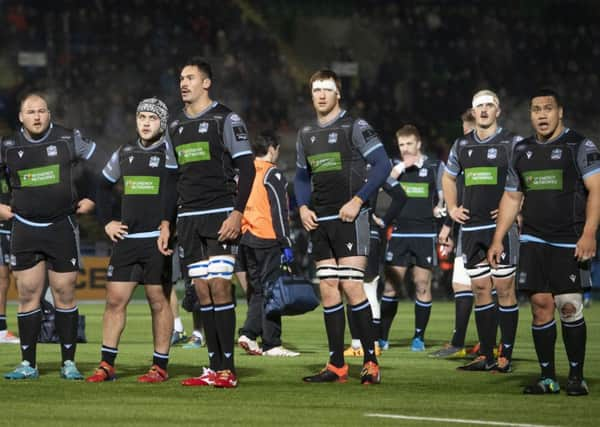Allan Massie: Irish rugby’s achievements leave Scotland a very poor second


It examines Ireland’s World Cup which, like Scotland’s , was disappointing, even more disappointing, indeed, than ours because so much more was generally expected of Ireland. Its chief conclusion is that Ireland’s style of play, which had brought success in the previous two or three years, should have been further developed before the World Cup. There is at least an implicit admission that there was a degree of unwarranted complacency in Ireland’s approach to the tournament.
No doubt a comparable report has been prepared at Murrayfield. Will it be published? It should be, even if to do so would run counter to the SRU’s long-standing practice of “omerta”when it comes to self-examination rather than self-congratulation. Not as much, admittedly, was expected of Scotland as of Ireland in Japan, but we all hoped for more than was achieved.
Advertisement
Hide AdAdvertisement
Hide AdThere is reason to be worried about the state of the professional game in Scotland. The present administration at Murrayfield has done wonders on the financial and commercial side, and the Union’s financial position is very much healthier than it was ten years ago. But this has not yet been reflected on the field. Our playing base remains sadly narrow and youth development is so inadequate that, this summer, Scotland dropped out of the top tier of nations in the Junior World Cup.
Last week’s matches were depressing. Glasgow,playing at home, lost 23-10 to what was little better than a Leinster second XV and did so despite fielding half-a dozen members of our World Cup squad and taking a 10-0 lead early in the game. Edinburgh went to Cork and won narrowly against Munster. Normally this would be a very good result, but Munster, for a match sandwiched between Heineken Cup games against Racing92 and Saracens, omitted all their first-choice XV and played a side drawn largely from their Academy. The Edinburgh pack included the Scotland captain Stuart McInally, international locks and flankers. Does anyone suppose that if Munster had come to Murrayfield with even half a full-strength team to play an Edinburgh reserve XV, they wouldn’t have won by an embarrassingly big margin?
Then, still lbrooding on Ireland and the progress that Irish rugby has made when compared to the professional game in Scotland, let us consider Connacht. For years they were the poor relations of Irish rugby. Indeed a decade or more ago the IRFU came close to shutting Connacht down, just as the SRU dispensed with the Border Reivers. Connacht then played stuffy but very limited rugby. I recall watching them at Netherdale against the Borders, and their game consisted of fly-half Eric Elwood hoisting sky-high Garryowens which the forwards would enthusiastically chase. Now Connacht, following a course set by Pat Lam when he coached them to win the Pro12 (as it was), play sparkling rugby.
Moreover they are redeveloping the Sportsground in Galway (population about 90,000) and it will soon be able to accommodate a bigger crowd than either Scotstoun or Edinburgh’s new mini-Murrayfield.
When it comes to ambition and achievement, Irish rugby leaves Scottish rugby a very poor second. What are we doing – or proposing to do – to redress the balance? Only engaging in wishful thinking? Or, a disillusioned sceptic might suggest, “just waiting for more South Africans to become eligible to play for Scotland?”
Meanwhile, it’s back to European rugby this weekend. Edinburgh will, I hope, have beaten Wasps at Murrayfield by the time you read this, while Dave Rennie has named what is near to being his strongest available side for the trip to La Rochelle. I say “near to” because, like many, I’m not convinced that Nick Grigg has more to offer at 13 than Huw Jones, good player though he is. It’s probably too much to hope that La Rochelle, having lost their first two matches, will also have lost interest in the cup, but Glasgow must win today to have any hope of making the quarter-finals.
The news of John Barclay’s retirement from international rugby is sad but not surprising. Barlcay, pictured, has been the outstanding Scottish back row for a long time,76 caps is a lot, but he should have had more. After he moved to Llanelli, where he would captain the Scarlets, he was inexplicably discarded by Scott Johnson in his brief and undistinguished time as Scotland’s coach, while members of the Vern Cotter fan club may not care to remember that, just as inexplicably, Cotter omitted him from his 2015 World Cup squad. That was as bizarre as it would be if Andy Farrell as Ireland’s new coach was to discard Peter O’Mahony.